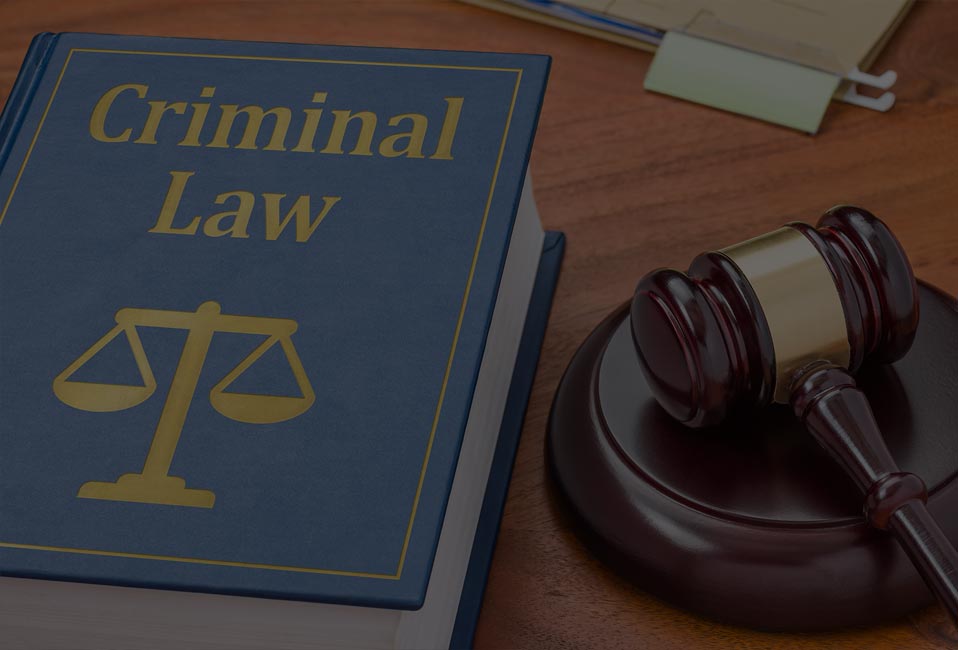Criminal Defense Attorney

Criminal offences involve violations of the criminal penal code, either by a failure to act, an omission, or other failures to comply with the state. In criminal proceedings punishment is sought upon the alleged wrongdoer, the defendant, by government and inherently the public of the jurisdiction in which the alleged crime took place. Unlike in civil disputes, individuals cannot bring up charges on other parties to remedy wrongdoing but through the agency of law enforcement.
If you are seeking legal representation, it is important that you choose a firm with appropriate experience. Research repeatedly exhibits that bad lawyering often contributes to bad outcomes in criminal cases. It matters who you choose to represent your legal rights in defense from the state’s prosecuting body. At the Law Office of McKamey & Williams, as former Homicide Prosecutor, Sex Crimes Prosecutor, County Court Division Chief, Felony Court Division Chief, DUI Instructor for FPAA (Florida Prosecuting Attorneys Association), your legal aid comprises more than twenty years of criminal law experience and literacy.
When you are booked for a crime, there are guiding notions that are helpful to adhere to in order to appropriately preserve your legal rights.
Requesting a Court-Appointed Lawyer is an option if you cannot afford a Private or Public Defender
Under the 6th and 14th constitutional and federally-mandated amendments, you have the right to be appointed counsel if you cannot afford one yourself.
However, keep in mind that if you are facing misdemeanor charges that do not result in incarceration a court-appointed lawyer will not be provided for you, or in the likelihood that you are released on probation and you violate it and its revocation results in incarceration, Nichols v. United States, 511 U.S. 738 (1994); Gagnon v. Scarpelli, 411 U.S. 778 (1973). The right to appointed counsel will not apply to civil cases such as in family law, even when such cases might result in incarceration. This constitutional provision only exist for criminal law.
Your Rights?
Under the fifth amendment and your Miranda rights, you have the right to remain silent to avoid self-incrimination, or providing information to law enforcement through a court document, to force you or coerce you into providing what is known as testimonial or communication evidence. Thus, during your first hearing following an arrest, you have the right to not incriminate yourself and request a lawyer. If you are offered a plea before counsel is assigned to you, there will be three options for you to choose from, guilty, not guilty, or exercising your ability to remain neutral and silent, pleading no contest. Pleading not guilty may be your best option when attempting to fight the charges you are facing and avoiding potential consequences inflicted upon your criminal record, and if civil claims arise, in deterrence of potential financial liability for a wrong that presumably results from the alleged criminal act. Discussing the best process is essential to keep open future engagement of lawful means, The Law Office of McKamey & Williams, can make to measure resolution.
When is bail offered to me?
Bail can be posted previously to the first appearance that is mandated before a judge, an arraignment. You may contact a licensed bondsman to bail you if you cannot come up with the full bond amount in cash or in check for the court, and do not want to wait for an arraignment hearing to see if you qualify for any pretrial release program, motion for bond reduction, or even a release on your own cognizance.
When do I get a hearing and get to see a judge?
During your arraignment, you will be escorted by law enforcement to the courthouse and the judge will decide whether to grant a pretrial release. On your own recognizance release (ROR) also known as an own recognizance (OR) or personal recognizance (PR) is a free release that qualifies to those who are indigent. ROR is a written promise signed by the defendant stating that the defendant will show up for future court appearances and comply with pre-release conditions. If you fail to comply with the assigned dates or requisites under ROR, you will face the inability to post any type of bond when you are brought back into custody.
If you need your arraignment hearing waived, criminal defendants often have this option. The Law Office of McKamey & Williams, can facilitate this process by communicating with law enforcement and filing a waiver of arraignment in writing. Our defense attorney can work out the conditions of release and submit it to the court with documents waiving arraignment.
In the event that you are waiting for state-appointed criminal defense, some motions you may do on your own include, filing a request with the court for a hearing to set bond, to reduce the bond, or to change bond conditions, if you have limited financial means, ROR is not available, and are looking for pretrial release options.
The most important thing to take away from all this is that choosing the right legal counsel affects you in how you move forward and your ability to do so, the future stigmas that you may deal with from probation, re-incarceration, or being adjudicated as a felon. When considering who can best represent you, experience in the specific area you are facing charges in is paramount.
The Law Office of McKamey & Williams, https://www.mckameydefenselaw.com can assist your criminal defense needs. Contact us for a free consultation, (561) 370-7424. For an experienced criminal defense lawyer, get in touch with us today.

